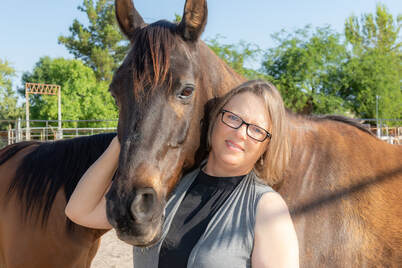|
What will I do now? I’ve asked myself this question many times in life when something occurs that will cause change to happen. I’ve never been a fan of change. In fact, I have and still do, dread it. When things change, it creates a whole universe of newness that I have to think about in order to make the transition from one way of living to another. Transitions are uncertain and our brains are not wired to like uncertainty. Over the course of my life, I have found ways to help me balance my dread with hope and I will share what I’ve discovered here.
Transitions can occur from changes in life situations such as marriage, divorce, death of a loved one, new jobs, loss of a job, children being born, children leaving home, retirement, and buying a new home. All of these changes can uproot our way of life, causing stress. Even when the changes are exciting, we are stepping into unchartered territory. For some of us, change can be a bit easier if we enjoy the novelty of new ventures while others have a harder time because we enjoy the comfort the status quo affords us. Despite all of the differences in people’s personalities that influence their comfort with change, we can all be affected mentally and emotionally by upheavals in our lives. So how do we maintain some balance in life during times of transition? Some of the first things that happen in transition, is that we lose our sense of direction and stop taking care of ourselves. We eat poorly, don’t get enough sleep, push ourselves too hard or shut down, and we fall off our schedules. All of this is due to uncertainty of the unknown. Here are some ideas to help bring about more balance: 1. Make a schedule/plan – this helps to alleviate some of the uncertainty by creating clear intentions and steps of action along with time frames for these. Be specific with your intentions. The more specific you are with these, the less uncertainty you will experience. 2. Allow yourself to grieve – whether you are grieving the loss of a loved one or any part of your life that is no longer the same, it’s important to be gentle with yourself and realize that this process takes time. Reach out for help from friends, family, support groups, therapists, or life coaches. Going it alone can increase your chances for anxiety and/or depression. 3. Give yourself time for breaks – being focused helps you meet your action steps in your schedule or plan but it’s not effective to stay focused all day. Your brain needs to rest so it’s a good idea to pause throughout the day by taking short power naps, meditating, taking a walk, or engaging in a fun relaxing hobby. Focus helps develop the structure we need but creating time for breaks offers us a more rounded day that keeps us refreshed and less likely to burn-out or give up. 4. Take care of yourself – eat healthy food, get exercise, get enough sleep, and find time to meditate or do some of the things you enjoy doing. Reach out to friends and family for social time. Schedule time with a professional if you need help with any of your self-care, including releasing and processing emotions. Finally, shifting your perspective so you can look at your transition time as having some positive results instead of just being all bad, will open you to new possibilities. We can begin to see some beautiful opportunities and life paths open up even when we are dealing with deep wells of pain and grief. Through support, self-care, and self-love we can better maintain our mental and physical health so that we can step into a new way of life with balance. We can be open to embrace new adventures that we would have never known if our life stayed exactly as it was. Darcie Litwicki is an Integrative Life Coach that combines solid coaching skills and working with horses to create a dynamic and transformative coaching process for people to reach their personal and professional goals. She believes her clients are the experts in their own lives and that we all have the ability to reach our highest potential but sometimes we need to engage in the coaching process to get there. Have you scheduled your free 60-minute coaching session to determine if this is a good fit for you in your life? Contact Darcie to get scheduled. You can schedule Equine Assisted Coaching In-Person Sessions at Silver Heart Ranch or sessions online (Zoom), or by phone. Darcie also offers a variety of group coaching options, workshops, and online classes. Contact her to learn more! Connect with Darcie www.silverheartranch.com [email protected] Facebook: @SilverHeartRanch (520) 370-8093 |
Archives
June 2022
Categories
All
|


 RSS Feed
RSS Feed